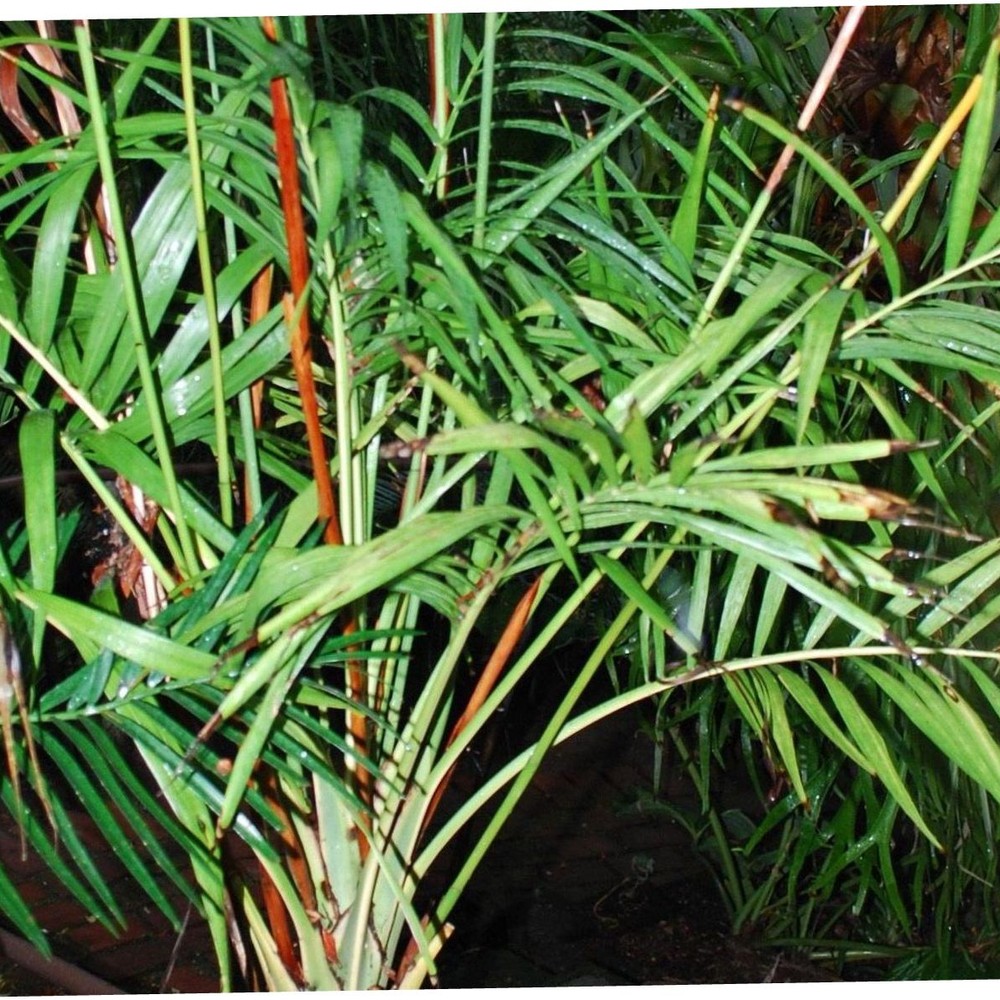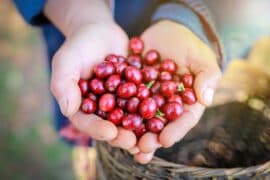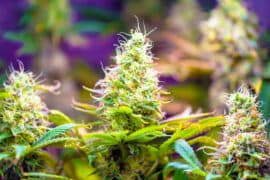Caroline ivory-nut palm
(Metroxylon amicarum)

Description
Metroxylon amicarum (amicarium Latin – 'of friends' also known as the Caroline ivory-nut palm) is a species of flowering plant in the family Arecaceae, endemic to the Caroline Islands. It was named for the Friendly Islands, now Tonga, from where it was first thought to have descended. It is the only species in the Metroxylon genus which is not hapaxanthic. Usually growing to 20 metres (66 ft), but occasionally over 25 m (82 ft), these massive palms have solitary trunks with widely spaced leaf-scar rings and old leaf bases attached to the top. Leaves are pinnately arranged, 5 m (16 ft) long, on 1-metre (3 ft 3 in) petioles. The lanceolate leaflets are dark green to 1 m (3 ft 3 in) and occur on the rachis at varying angles, creating a plumose leaf. Unlike its monocarpic relatives, this species has a narrow inflorescence which develops within the leaf-bases; the stem is erect until the fruit matures and then sags to a pendent cluster. The single-seeded fruit are 9 centimetres (3.5 in) long, extremely hard, and are covered in brown, glossy scales. Of all species in the genus it is probably the most hardy to cold. It is found only in the Federated States of Micronesia. It is threatened by habitat destruction. The trunks of Metroxylon species are solitary or clumped and large to massive in size, and usually sprout aerial roots at leaf-scar rings. All but one is monocarpic (hapaxanthic), foliage is pinnate with oversized petioles and leaf sheaths. The petioles are distinguished by "groups of small black spines resembling the record made by a seismograph as it registers a mild tremor". All species have spines on the rachis and petiole. The monocarpic species present a Christmas tree shaped inflorescence, or instead, upward-reaching branches spreading horizontally. The fruit, covered in tough scales, are relatively large for palms and contain one seed. Metroxylon is a genus of monoecious flowering plants in the Arecaceae (palm) family, consisting of seven species. They are native to Western Samoa, New Guinea, the Solomon Islands, the Moluccas, the Carolines and Fiji in a variety of habitats, and cultivated westward to Thailand and Malaya. The name is formed from the combination of two Greek words, metra - "womb", commonly translated as "heart" in this context and xylon - "wood", in allusion to the large proportion of pith contained in the plant.
Taxonomic tree:







